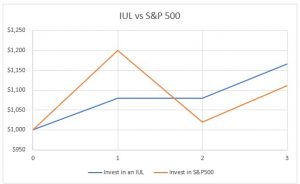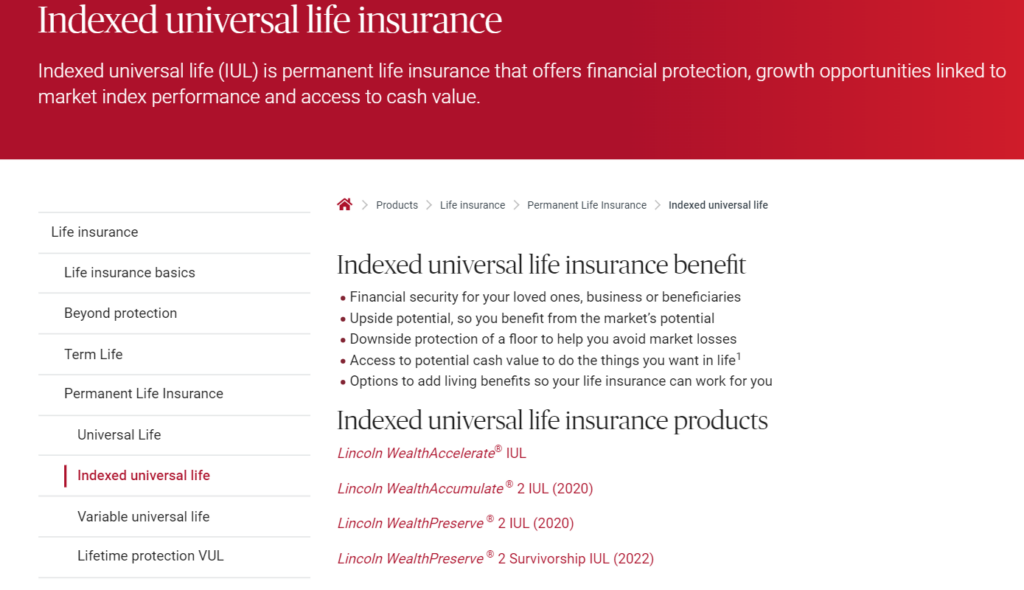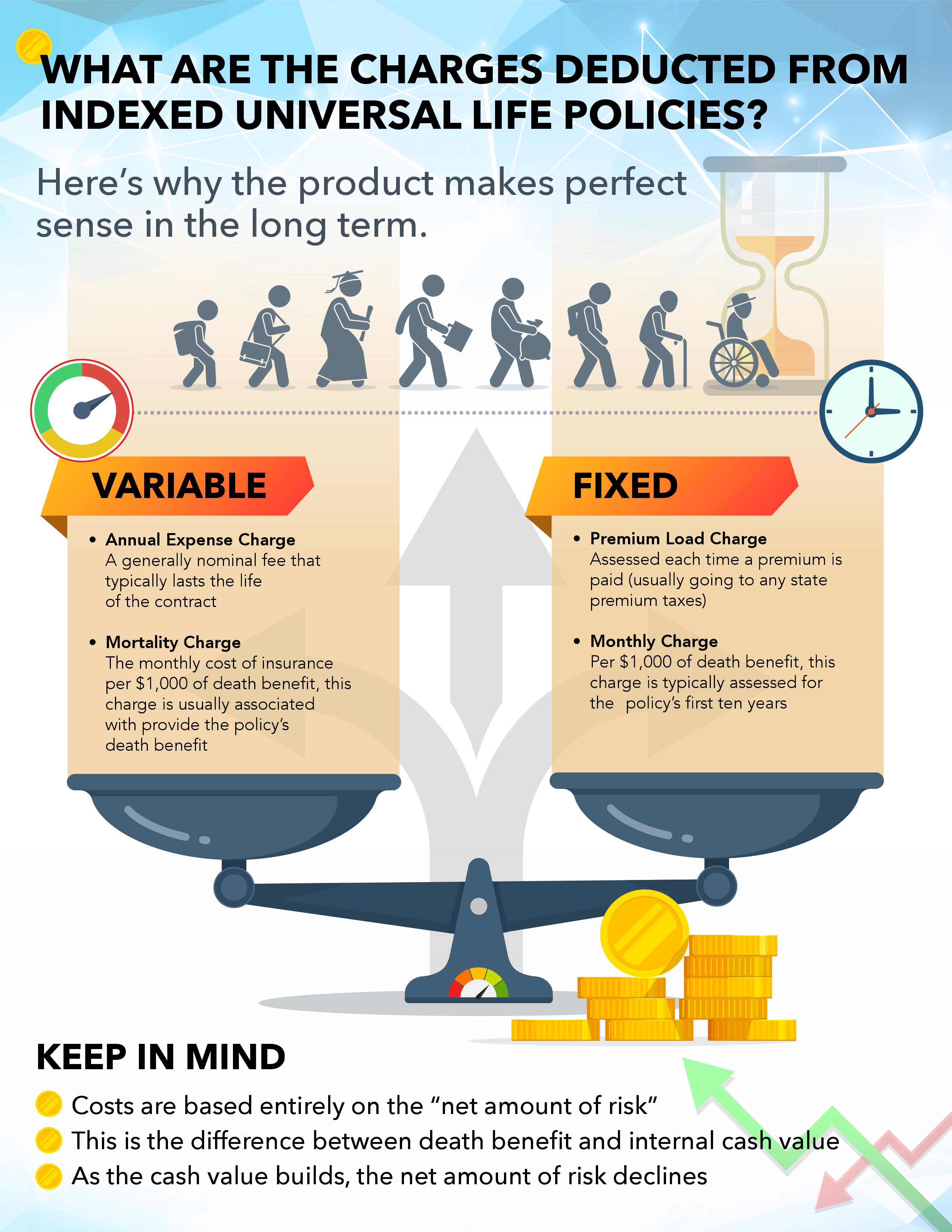All Categories
Featured
Table of Contents
1), often in an attempt to defeat their classification averages. This is a straw male disagreement, and one IUL people like to make. Do they contrast the IUL to something like the Vanguard Total Securities Market Fund Admiral Show to no load, an expenditure proportion (ER) of 5 basis factors, a turnover ratio of 4.3%, and an extraordinary tax-efficient document of circulations? No, they contrast it to some dreadful proactively taken care of fund with an 8% load, a 2% EMERGENCY ROOM, an 80% turn over ratio, and a horrible record of short-term capital gain circulations.
Mutual funds typically make yearly taxable circulations to fund proprietors, even when the value of their fund has actually decreased in value. Common funds not only require revenue reporting (and the resulting annual taxation) when the mutual fund is increasing in worth, but can additionally enforce income taxes in a year when the fund has actually decreased in worth.
You can tax-manage the fund, gathering losses and gains in order to minimize taxable distributions to the capitalists, but that isn't somehow going to transform the reported return of the fund. The ownership of mutual funds might call for the shared fund owner to pay approximated tax obligations (insurance indexation).

IULs are simple to place to make sure that, at the owner's fatality, the beneficiary is exempt to either income or inheritance tax. The same tax obligation decrease methods do not function almost too with common funds. There are numerous, typically expensive, tax traps linked with the moment trading of common fund shares, traps that do not use to indexed life insurance policy.
Possibilities aren't really high that you're mosting likely to go through the AMT due to your common fund circulations if you aren't without them. The remainder of this one is half-truths at ideal. For example, while it holds true that there is no earnings tax due to your beneficiaries when they acquire the profits of your IUL plan, it is also true that there is no earnings tax obligation because of your successors when they inherit a common fund in a taxed account from you.
Universal Life Insurance Good Or Bad
The federal inheritance tax exemption limitation is over $10 Million for a pair, and growing every year with rising cost of living. It's a non-issue for the large bulk of physicians, a lot less the remainder of America. There are much better ways to avoid estate tax issues than getting investments with low returns. Common funds might trigger revenue tax of Social Protection advantages.

The development within the IUL is tax-deferred and may be taken as free of tax income by means of fundings. The policy owner (vs. the common fund supervisor) is in control of his or her reportable income, therefore enabling them to reduce and even eliminate the taxes of their Social Protection benefits. This is great.
Right here's one more minimal problem. It's real if you buy a mutual fund for say $10 per share prior to the circulation day, and it disperses a $0.50 distribution, you are after that mosting likely to owe taxes (most likely 7-10 cents per share) regardless of the reality that you haven't yet had any kind of gains.
In the end, it's actually concerning the after-tax return, not just how much you pay in tax obligations. You're likewise probably going to have more money after paying those taxes. The record-keeping demands for having mutual funds are dramatically more complex.
With an IUL, one's documents are maintained by the insurer, copies of annual declarations are sent by mail to the proprietor, and circulations (if any) are totaled and reported at year end. This is also kind of silly. Naturally you should keep your tax obligation documents in situation of an audit.
Best Equity Indexed Universal Life Insurance
Barely a factor to buy life insurance. Shared funds are commonly part of a decedent's probated estate.
Additionally, they are subject to the delays and expenditures of probate. The proceeds of the IUL plan, on the various other hand, is always a non-probate distribution that passes outside of probate directly to one's called recipients, and is as a result not subject to one's posthumous creditors, undesirable public disclosure, or similar delays and expenses.
We covered this one under # 7, however just to recap, if you have a taxed common fund account, you have to put it in a revocable count on (and even less complicated, utilize the Transfer on Death designation) in order to stay clear of probate. Medicaid disqualification and life time income. An IUL can offer their owners with a stream of revenue for their whole lifetime, despite how much time they live.

This is helpful when arranging one's affairs, and converting assets to income prior to a retirement home arrest. Common funds can not be converted in a comparable manner, and are often taken into consideration countable Medicaid assets. This is another foolish one supporting that bad people (you understand, the ones who require Medicaid, a federal government program for the bad, to pay for their retirement home) ought to make use of IUL as opposed to mutual funds.
Maximum Funded Life Insurance Contract
And life insurance policy looks terrible when contrasted rather versus a retirement account. Second, people that have money to buy IUL above and beyond their pension are going to need to be terrible at managing money in order to ever receive Medicaid to spend for their nursing home costs.
Chronic and terminal illness motorcyclist. All plans will certainly permit a proprietor's very easy access to cash from their plan, commonly forgoing any abandonment penalties when such individuals suffer a severe health problem, need at-home care, or end up being constrained to an assisted living facility. Shared funds do not offer a similar waiver when contingent deferred sales charges still relate to a common fund account whose proprietor requires to market some shares to money the expenses of such a stay.
Equity Indexed Universal Life
You get to pay even more for that benefit (biker) with an insurance coverage policy. Indexed universal life insurance policy gives death advantages to the beneficiaries of the IUL proprietors, and neither the proprietor neither the beneficiary can ever before lose money due to a down market.
Currently, ask yourself, do you in fact require or desire a fatality benefit? I definitely don't require one after I reach financial self-reliance. Do I want one? I expect if it were low-cost enough. Certainly, it isn't affordable. Usually, a purchaser of life insurance policy spends for real price of the life insurance coverage advantage, plus the costs of the plan, plus the earnings of the insurance coverage company.
Universal Life Insurance Agent
I'm not totally certain why Mr. Morais tossed in the whole "you can't shed cash" once again here as it was covered quite well in # 1. He just intended to repeat the most effective marketing factor for these things I intend. Again, you do not lose small dollars, however you can shed actual bucks, in addition to face severe chance price because of low returns.

An indexed global life insurance coverage plan proprietor may trade their policy for a completely various policy without causing earnings tax obligations. A common fund proprietor can not move funds from one shared fund firm to an additional without selling his shares at the previous (hence setting off a taxable event), and repurchasing brand-new shares at the latter, often based on sales fees at both.
While it is real that you can trade one insurance policy for one more, the factor that people do this is that the very first one is such a dreadful plan that even after acquiring a new one and experiencing the early, unfavorable return years, you'll still come out ahead. If they were offered the right policy the very first time, they should not have any kind of wish to ever trade it and undergo the very early, unfavorable return years once again.
Latest Posts
Indexed Universal Life Insurance Quotes
Fidelity Iul
Term Insurance Vs Universal Life